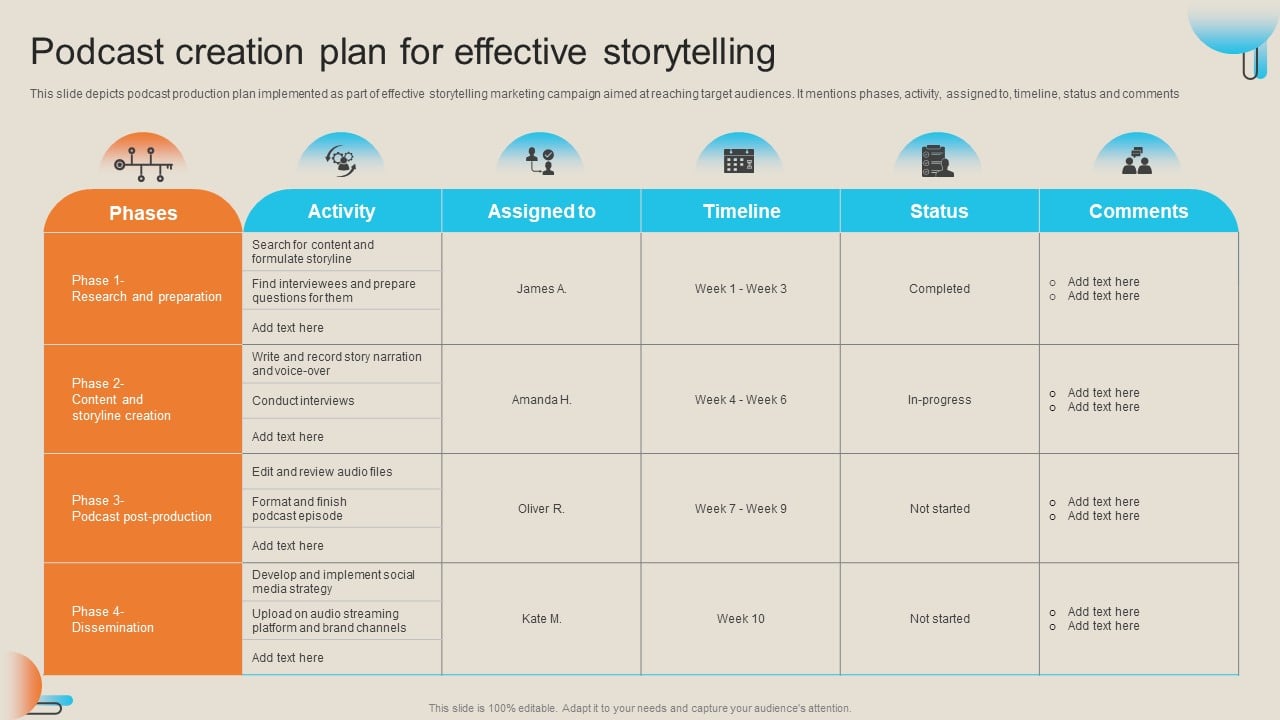AI-Driven Podcast Creation: Processing Repetitive Scatological Documents

Table of Contents
Automating Transcription and Data Cleaning with AI
The initial hurdle in creating a podcast from scatological documents is often the sheer volume of data and the difficulties in processing it. AI-powered transcription offers a significant time-saving advantage, dramatically reducing the manual effort required. However, the nature of these documents presents unique challenges:
- Archaic Language and Handwriting: Many historical scatological documents feature archaic language, unusual spellings, and poor handwriting. Traditional transcription methods struggle with these complexities, leading to inaccuracies and delays. AI, however, is trained on vast datasets and can often decipher even illegible text with impressive accuracy.
- Non-Standard Spelling and Formatting: Inconsistent spelling and formatting further complicate the transcription process. AI algorithms can be trained to recognize and correct these inconsistencies, leading to cleaner, more standardized text for analysis.
- Irrelevant Content Removal: Scatological documents often contain extraneous information that's irrelevant to the podcast's narrative. AI can be used to identify and filter out this unnecessary data, focusing the analysis on the most pertinent details.
Specific AI tools excel in these areas. For instance, services like Otter.ai and Trint offer robust transcription capabilities, handling various audio formats and dialects. Furthermore, AI-powered text cleaning tools can automatically standardize spelling, correct grammatical errors, and remove irrelevant sections, ensuring a high-quality, processed dataset ready for analysis. This automation frees up valuable time, allowing researchers and podcasters to focus on the creative aspects of podcast production.
Identifying Key Themes and Narratives within the Data
Once the documents are transcribed and cleaned, the next step involves extracting meaningful information. Natural Language Processing (NLP) plays a vital role here. NLP techniques allow for in-depth analysis of large datasets, uncovering hidden patterns and narratives.
- Keyword Extraction and Topic Modeling: AI can identify recurring keywords and phrases, helping to pinpoint central themes within the scatological documents. Topic modeling algorithms can group related concepts together, providing a structured overview of the data.
- Sentiment Analysis: Understanding the emotional tone of the documents is crucial. Sentiment analysis uses AI to gauge whether the text expresses positive, negative, or neutral sentiments, adding another layer of context to the analysis. This nuanced understanding can significantly enrich the podcast's narrative.
- Event Extraction: AI can identify specific events or occurrences mentioned within the documents, providing a chronological framework for the podcast’s storyline.
The ability to identify key themes, patterns, and significant events within large datasets of scatological documents is a game-changer. It allows for the creation of a coherent and engaging podcast narrative, drawing connections and insights that might otherwise remain hidden. Contextual understanding is paramount when working with such sensitive content, and AI tools facilitate a deeper, more informed interpretation.
Generating Podcast Scripts and Content from AI Insights
With the data analyzed and key themes identified, AI can assist in generating compelling podcast scripts. AI writing tools can transform factual information into engaging narratives, saving time and effort in the scriptwriting phase.
- AI-Powered Script Generation: Several AI tools can generate different podcast formats, from interview-style scripts to narrative storytelling and documentary-style presentations, depending on the nature of the analyzed data and desired podcast style.
- Human Oversight and Ethical Considerations: While AI can assist in script generation, human oversight remains critical. A human editor ensures accuracy, maintains ethical standards when dealing with sensitive material, and adds a layer of artistic control to the final product. It's essential to remember that AI augments human creativity, not replaces it.
Ethical considerations are paramount when dealing with scatological material. The responsible representation of this content necessitates careful consideration of privacy, potential misinterpretations, and the overall impact of the podcast. AI can help by flagging potentially sensitive information, enabling human editors to handle it with the necessary care and contextualization.
Ethical Considerations in Handling Sensitive Content
Working with scatological material demands a high degree of ethical sensitivity. Several crucial considerations must be addressed:
- Privacy: Ensure that the individuals involved in the documents, if identifiable, are not inadvertently harmed or embarrassed by the podcast's content. Anonymization techniques might be necessary.
- Potential Misinterpretations: Scatological content is inherently prone to misinterpretation. Clear contextualization and responsible framing are essential to avoid causing offense or propagating harmful stereotypes.
- Respectful Representation: The material should be presented in a respectful and informative manner, avoiding sensationalism or exploitation.
Conclusion
AI-driven podcast creation offers a revolutionary approach to processing repetitive scatological documents. By automating tedious tasks like transcription and data cleaning, and by leveraging NLP for thematic analysis and script generation, researchers and podcasters can significantly enhance their productivity and create more engaging content. While AI serves as a powerful tool, human oversight remains crucial for ensuring ethical considerations and maintaining the artistic integrity of the final product. Embrace the power of AI-driven podcast creation to transform your research into captivating narratives. Start exploring the possibilities of using AI to revolutionize your own podcast creation process today.

Featured Posts
-
 Kartels Restrictions A Police Source Explains The Safety Concerns Trinidad And Tobago Newsday
May 21, 2025
Kartels Restrictions A Police Source Explains The Safety Concerns Trinidad And Tobago Newsday
May 21, 2025 -
 Nuffy On Touring With Vybz Kartel A Dream Come True
May 21, 2025
Nuffy On Touring With Vybz Kartel A Dream Come True
May 21, 2025 -
 10 Man Juventus Held To Draw By Lazio In Serie A Thriller
May 21, 2025
10 Man Juventus Held To Draw By Lazio In Serie A Thriller
May 21, 2025 -
 Bbc Breakfast Presenters Are You Still There Moment Guest Interruption
May 21, 2025
Bbc Breakfast Presenters Are You Still There Moment Guest Interruption
May 21, 2025 -
 Is Big Bear Ai Stock A Buy Now A Comprehensive Analysis
May 21, 2025
Is Big Bear Ai Stock A Buy Now A Comprehensive Analysis
May 21, 2025
